What to Eat Before Fasting to Avoid Hunger
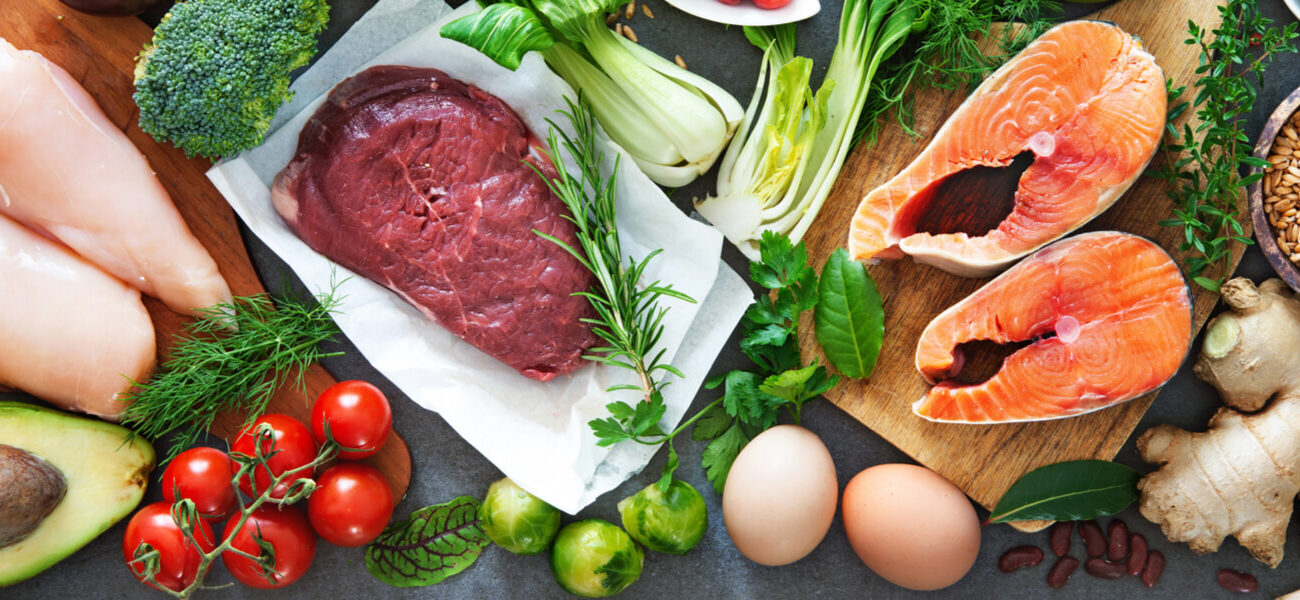
If you are a beginner, the idea of not eating for more than 10 hours could cause some panic. We are used to adopting a specific eating pattern. But, the diet we follow may not be ideal for our goals.
If you want to start practicing intermittent fasting as part of your healthy routine, let us teach you how to eat to prepare your body. This is very important to help you get through all the fasting hours without it being a nightmare.
At Health Insider, we’ve compiled the best healthy food choices that will keep you satiated.
How to Prepare for Fasting?
Starting a fast sounds simple, but the truth is that it requires prior preparation both mentally and physically. If you were used to eating 4–5 times a day, going from that to eating only 1–2 times a day is a big change.
New habits are not installed from one day to another, and it is important to have a plan to make everything go smoothly. But, leave the stress out of it because you are allowed to fail.
To practice this method, you must know what to eat before a fast. That is as important as knowing how to select the food to break the fast.
Foods have a metabolic effect on the body. This means that certain foods can do you a lot of good or a lot of harm. Before fasting, select natural and healthy options as they are safer for your body.
Processed food does not cut hunger; it only gives you a momentary feeling of pleasure thanks to the additives it contains, while real food provides nourishment and keeps you satiated.
Also, drinking water is the key to keeping away the discomfort that is so common during fasting hours. A well-hydrated body will be free of fatigue, headaches, and cravings.
Short fast
A short fast of 12–16 hours a day will guarantee the benefits of this method. To prepare yourself to fast this long, select fresh foods such as:
- Vegetables and fruits: They contain vitamins, minerals, and fiber, which will keep you healthy and satiated.
- Legumes: Lentils, chickpeas, and black beans have a good proportion of protein and complex carbs. This combination is important to maintain optimal body functions.
- Animal protein: Helps maintain and build muscle mass. Its slow digestion allows keeping satiety for a longer time.
The best trick to “survive” throughout the fasting hours is to leave most of these hours at night. If you go to bed at 11 PM and wake up at 7 AM, you will already have done 8 hours of fasting. Try to eat your last meal at 7 PM to add 3 more hours.
When you get up in the morning, look for activities to help you complete the remaining hours. You can do some meditation, yoga, or go for a walk. Taking a shower or reading a book is also a good way to kill time before preparing your first meal.
Intermittent fasting requires organization and determination. If you have a good strategy and eat well beforehand, you are sure to gain significant changes in your body.
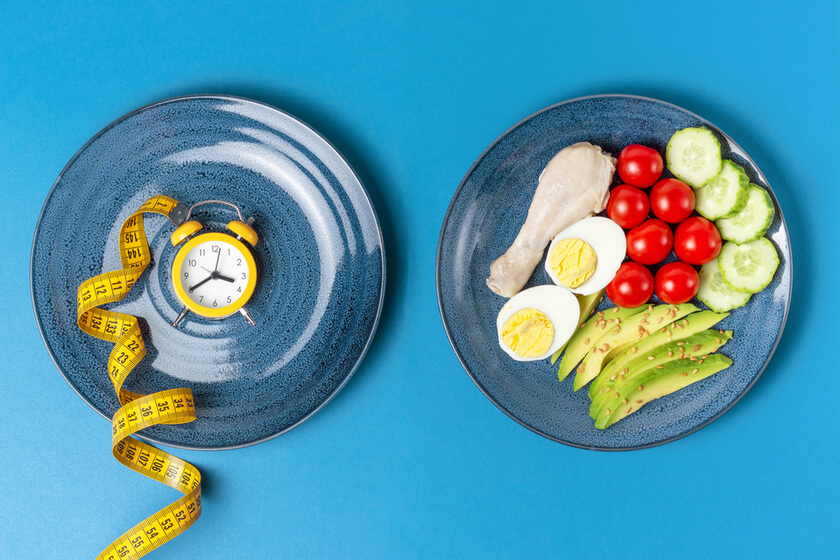
Advertisement
Long fast (24 hours and more)
Besides replenishing your body with nutrients to prepare it for fasting, your mental state is also crucial. It takes a lot of willpower at the beginning, especially to not drink broths or teas too early. Although these options are acceptable in fasting, you should drink nothing but water at the beginning.
Getting your body used to fast little by little is the best way to prevent the discomfort of doing it abruptly.
Giving up your favorite foods and drinks is not an easy job, so try to do it step by step. Two weeks beforehand, lower your intake of caffeine and alcohol, as well as processed products.
A week before a long fast, start including more protein and vegetables on your plate. This way, you will be able to eat the majority of your nutritional requirements in one meal.
The easiest way to round out your calories for the day is to add healthy fats such as seeds and nuts. Avocado and fatty cuts of meat are also excellent choices. Remember that fasting does not mean stopping eating but eating at specific hours. Maintaining a good balance of calories and nutrients is essential to gain the benefits of intermittent fasting.

Your Personal Intermittent Fasting App
- Progress tracker and calendar
- Calorie tracker
- More than 5,000 healthy recipes
- Training routines
- Daily motivation and tips
- Water intake targeting
- Daily caloric intake tracker
What to Eat Before Fasting?
As tempting as it sounds, venturing into fasting just because you don’t feel hungry that day is not a good idea. Your previous habits are a great help in making the transition, but fasting requires adequate preparation.
Let’s say you succeed, you go a whole day without eating because of stress or work, and nothing happens. But that was only the first day. The next day, when you want to continue that fasting routine and eat once or twice, the lack of nutrients can play a trick on you.
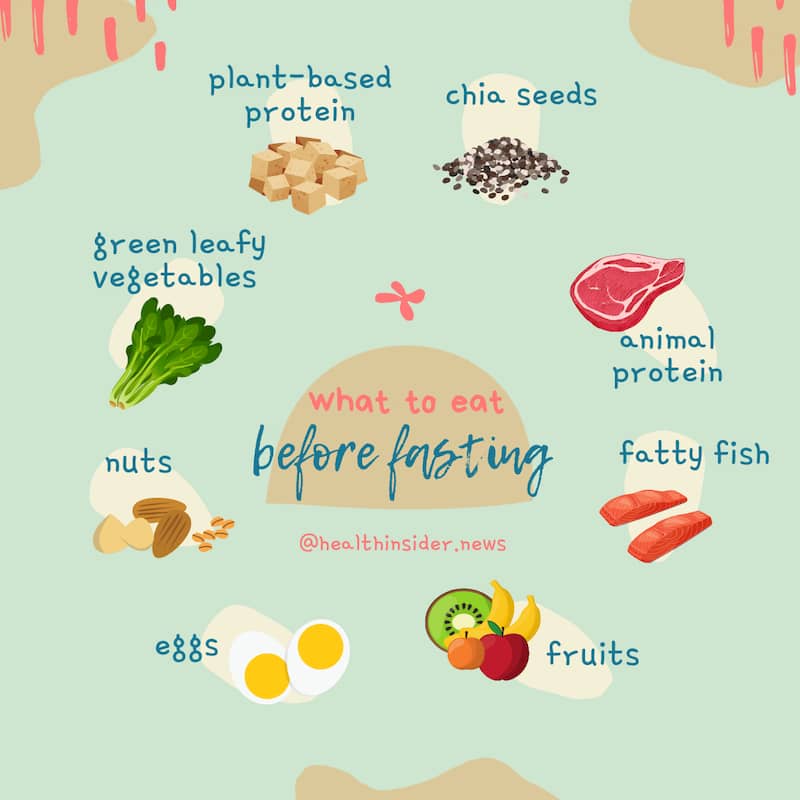
You begin to devour everything in front of you without measure and go overboard on calories. And, you don’t get the nutrients you need to support fasting.
Don’t take it lightly if you want to feel good. Our team has compiled a list of the best foods to eat before fasting. These foods will help you feel full and are rich in nutritional properties.
Best Foods to Eat Before Fasting:
#1 Chia seeds
Chia seeds have no taste, but they are loaded with benefits. By adding a spoonful to your juices, soups, or salads, you get various nutrients. It is a seed rich in protein and good fats. It also contains antioxidants, fiber, vitamins, and minerals.
What makes them an appropriate food to eat before fasting is that they expand and produce a gel that generates satiety when digested.
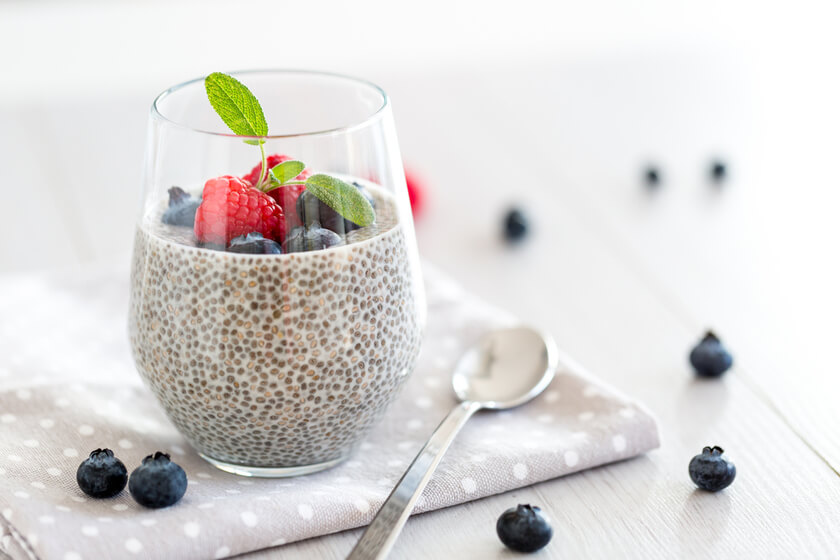
#2 Fruits
Fiber is a part of food that cannot be digested. It is found in large quantities in the skin of all fruits and vegetables. Its passage through the intestine is slow, favoring digestion and evacuation. Fruits are a great choice to eat before fasting.
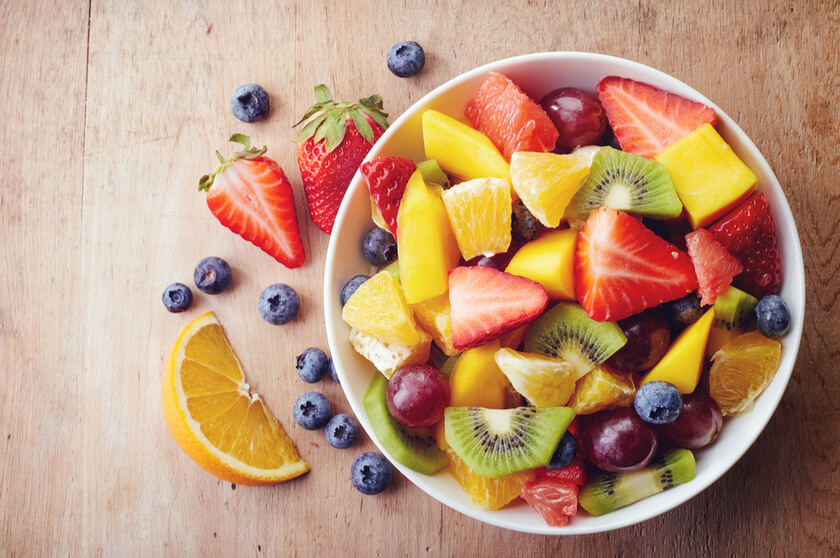
#3 Green leafy vegetables
The advantage of fiber-rich foods is that they help control blood sugar levels, maintaining control over diabetes. They also have positive effects on lowering cholesterol. Eat green leafy vegetables in your eating window.
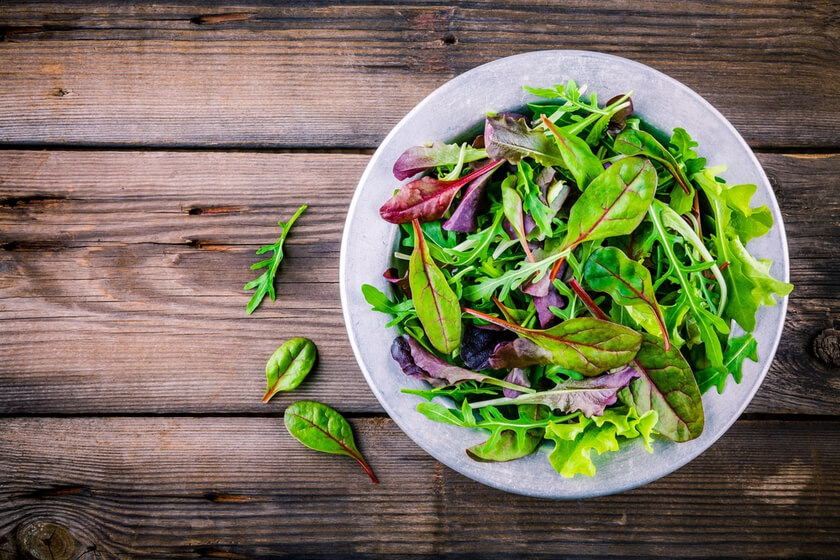
#4 Eggs
We can say many positive things about eggs, starting with the fact that it is one of the best sources of protein. It contains branched-chain amino acids, ideal for meeting people’s needs. Amino acids are essential substances that the body cannot produce on its own, so it is essential to ingest them in the daily diet.
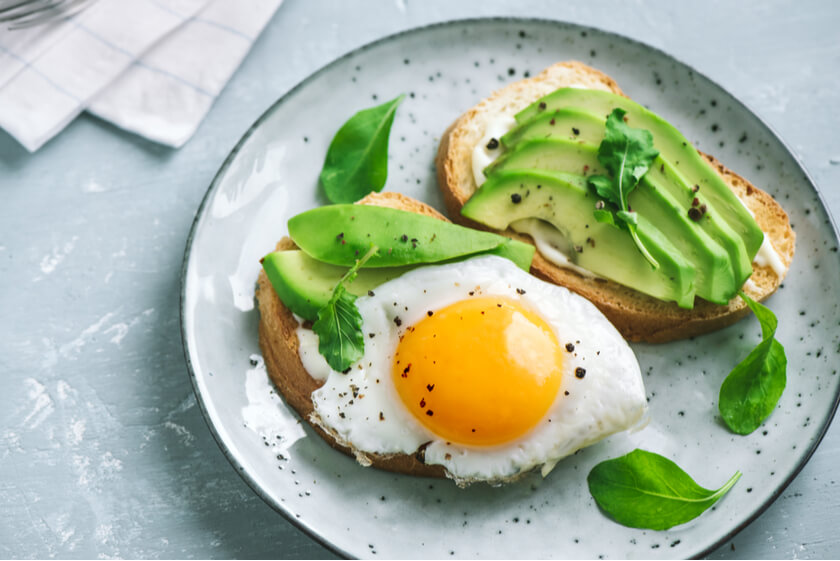
Egg yolks contain healthy fat. This balance between proteins of high biological value and good fats makes it the protagonist in many diets.
You can eat as many eggs as you want during the week as their benefits are well documented. You will have enough protein reserves to maintain your muscle mass by eating them before fasting.
#5 Fatty fish: Salmon, tuna, mackerel, sardines
Fatty fish are healthy fat. Their omega-3 content prevents cardiovascular disease, lowers cholesterol, and promotes weight loss. Combine fish with your favorite vegetables, and you will have a dish that will keep you fuller for longer fasting periods.
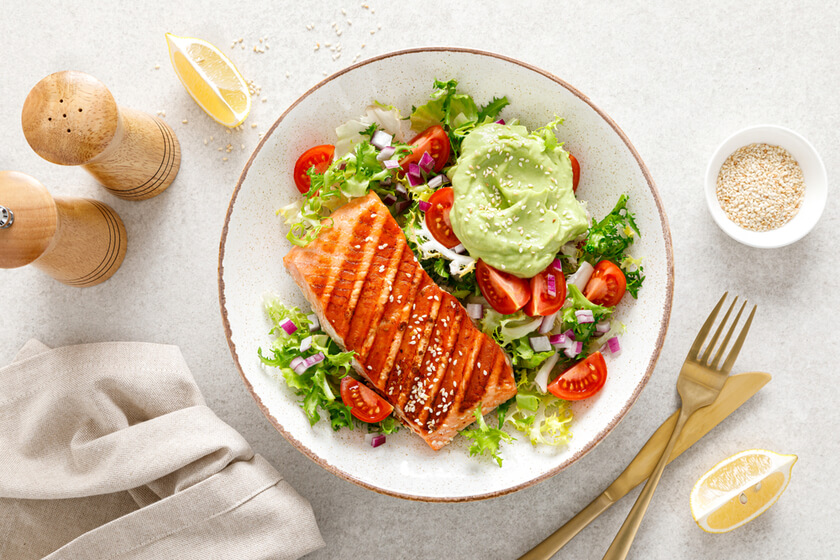
#6 Animal protein: Red meat, chicken, fish, turkey
Protein is essential for maintaining muscles and cells. Every structure in your body is made up of protein, from your blood cells to your skin. This is why it must be part of your diet to prevent losing muscle mass while you lose weight.
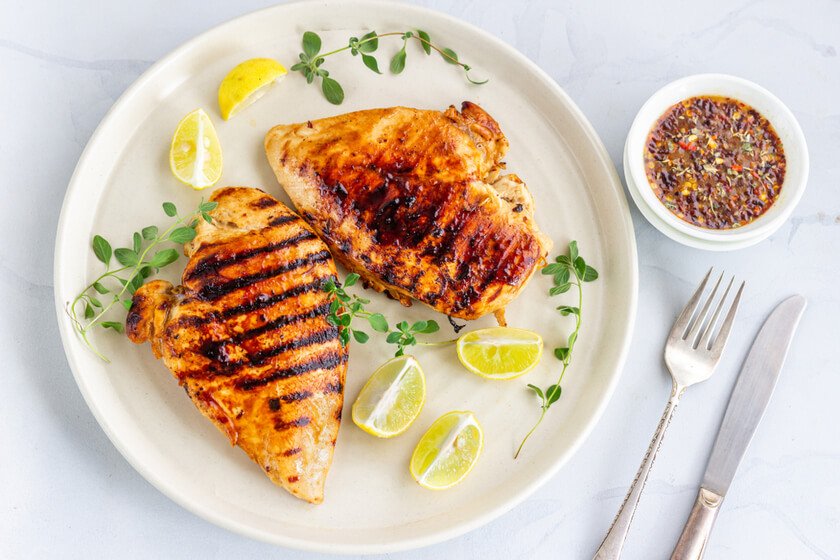
#7 Plant-based protein: Tofu, lentils, chickpeas, black beans, pinto beans
This macronutrient comes not only from animals but from vegetable sources as well. Try to eat Greek yogurt, tofu, or legumes before fasting.
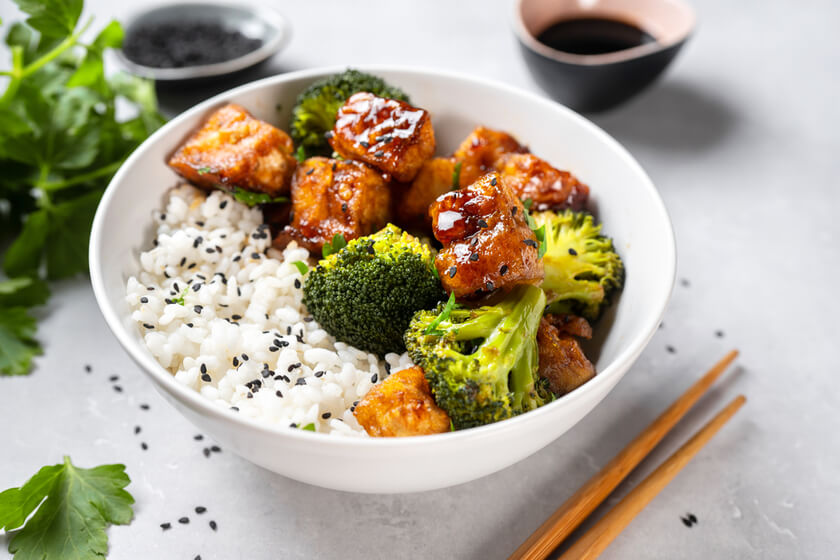
What Food to Avoid Before Intermittent Fasting?
If all you eat is processed and low-quality food before you start fasting, you will feel weak and crave food for sure. Junk food brings nothing but temporary pleasure. The fatigue, indigestion, and anxiety of poor nutrition make them not worth it.
Avoid these foods before fasting:
Studies on the damage sugar does are overflowing. Sugar is not nutritious, and it’s addictive. If you are an avid consumer of high sugar products, transitioning to a healthy lifestyle can be pretty tricky. The adverse effects of a high sugar diet are high blood glucose, cardiovascular disease, obesity, and oral health problems.
Products high in sugar are candies, syrups, cookies, and ice cream. We recommend reducing sugar consumption at least two weeks before to avoid anxiety during fasting periods.
#2 Processed food: Canned food, frozen food, ready-to-microwave food
Certain foods that are processed have been convenient for many years because of their ease of storage and preservation. This requires large amounts of preservatives that cause a significant impact on the digestive system.
A body loaded with preservatives and dyes contains many harmful substances that prevent fat burning for weight loss. They also increase the risk of heart disease, diabetes, and even some digestive tract cancers. This type of food is low in nutrients and does not provide satiety. Instead, the excess of flavorings can cause dependency.
#3 Soda: Regular soda, diet soda
Soft drinks contain a lot of sugar. It is a very easy way to consume large amounts of calories without realizing it. Because of this, they cause addiction, and it will be challenging to get rid of them from one day to another. Lower your soda consumption and drink water and herbal teas instead.
A Word From our RD
The transition to healthy habits through intermittent fasting can be tedious. Not only does it involve a change in diet, but it also requires a change of routine and great determination. The more hours of fasting you want to promote autophagy, the better prepared you should be.
Foods rich in fiber are the best ally for healthy digestion, beneficial gut bacteria, and increased satiety. Thus, it becomes an indispensable option to eat before fasting.
Fiber can be soluble, absorbing water and expanding, thus protecting the intestinal walls. Foods rich in soluble fiber are oats, flaxseed, chia, and fruits. Insoluble fiber is a residue that gives consistency to the stool and stimulates intestinal transit. You can find it in legumes, wheat bran, nuts, and whole grains.
Fasting Is Manageable With Proper Nutrition
If you start planning your fast focusing on your goal, you will see how everything begins to work in your favor. Before you start, you should have a plan that includes what you should do during the fasting period and feeding window.
Before fasting, a low-carb diet with meals rich in vitamins and minerals is the ideal ally. Include foods rich in healthy fats, proteins, and fiber to promote satiety. Keeping you full of the proper nutrients is the key to success.
This way, you will eat fewer calories each time until you complete the transition to a prolonged fast.
Avoid highly processed foods, even those that claim to be calorie-free, such as diet sodas. These products contain chemicals that damage your gut and interfere with weight loss.
Health deserves sacrifices. But, if you follow these recommendations, you can have an easy fast with excellent results.

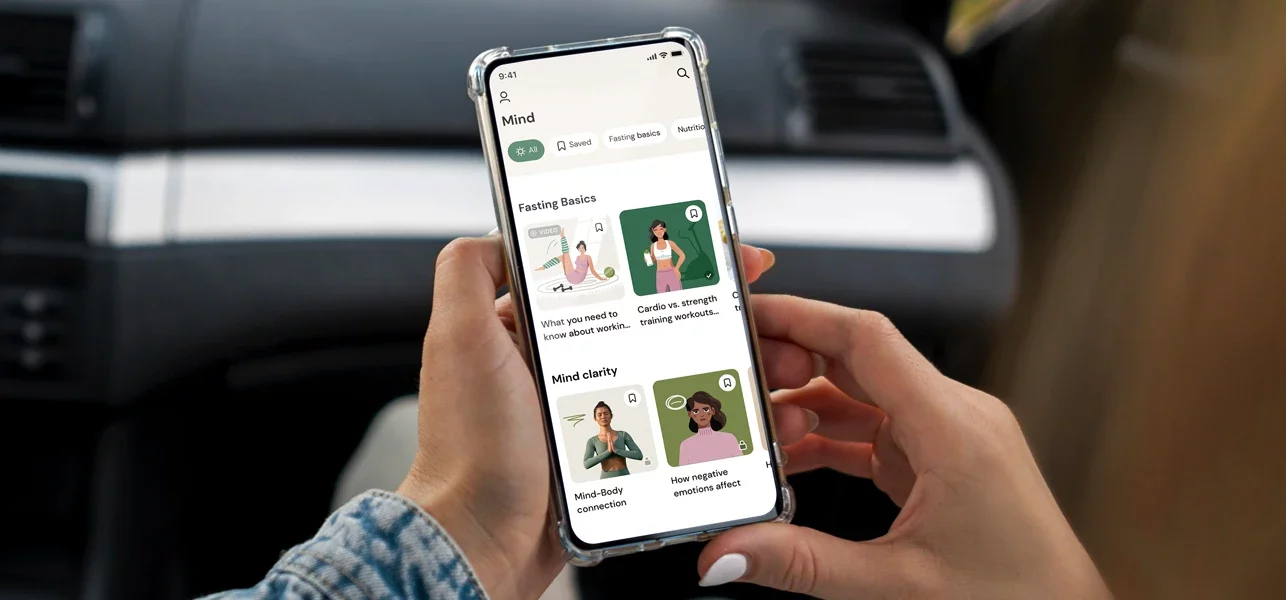





Comments (0)